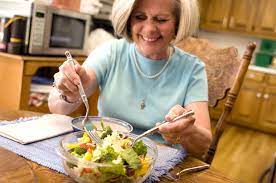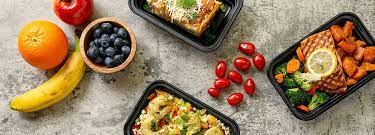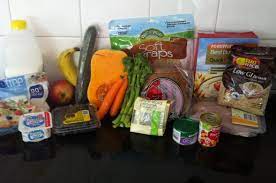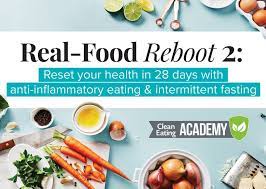Table of Contents

Introduction:
Menopause is a significant phase in a woman’s life, marked by various hormonal changes that can impact weight gain. Maintaining a healthy weight during this transition is essential for overall well-being. In this article, we will explore a comprehensive the menopause diet 5 day plan to lose weight designed to help women and embrace a healthier lifestyle.
Under standing menopause
Menopause is a natural biological process that occurs as women age, leading to a decline in reproductive hormones such as estrogen and progesterone. These hormonal changes can result in a decrease in metabolism, making weight loss more challenging. Moreover, menopausal women often experience a redistribution of fat to the abdominal area, which further contributes to weight gain. Understanding these changes is crucial in developing an effective diet plan.
The Importance of a Healthy Diet during Menopause:
A well-balanced diet is essential during menopause to support overall health and manage weight gain. Incorporating nutrient-dense foods helps provide the necessary vitamins, minerals, and antioxidants that support hormonal balance, bone health, and weight management. Additionally, a healthy diet can alleviate menopausal symptoms such as hot flashes and mood swings.

The Menopause Diet 5 Day Plan for Weight Loss:
Day 1: Breakfast, Lunch, Dinner, and Snack Options:
Kickstart your weight loss journey with a nutrient-packed day. Opt for lean proteins, whole grains, fruits, and vegetables to fuel your body and support a healthy metabolism. Sample meal ideas include a spinach and mushroom omelette for breakfast, grilled chicken salad for lunch, roasted salmon with quinoa for dinner, and a refreshing fruit salad as a snack.
Day 2: Breakfast, Lunch, Dinner, and Snack Options:
On day two, focus on reducing processed foods and added sugars. Incorporate foods rich in fiber and healthy fats to keep you feeling satisfied throughout the day. Consider starting your morning with a Greek yogurt and berry parfait, enjoying a colorful vegetable stir-fry for lunch, indulging in a baked sweet potato with grilled veggies for dinner, and snacking on a handful of nuts.
Day 3: Breakfast, Lunch, Dinner, and Snack Options:
Day three centers around plant-based proteins and healthy fats. Including legumes, nuts, seeds, and avocados in your meals provides essential nutrients and promotes satiety. Begin your day with a protein-rich smoothie, enjoy a quinoa and black bean salad for lunch, savor a delicious vegetable stir-fry with tofu for dinner, and grab a small portion of hummus with carrot sticks for a snack.
Day 4: Breakfast, Lunch, Dinner, and Snack Options:
Incorporating phytoestrogens and antioxidants into your diet is key on day four. These compounds can help balance hormone levels and support overall health. Start your morning with overnight oats topped with berries and flaxseeds, have a mixed greens salad with grilled tempeh for lunch, relish a plate of roasted vegetables and chickpeas for dinner, and treat yourself to a small square of dark chocolate as a snack.

Day 5: Breakfast, Lunch, Dinner, and Snack Options:
On the final day, focus on hydration and foods that promote bone health. Including calcium-rich foods and staying well-hydrated is crucial during menopause. Begin with a refreshing green smoothie, enjoy a grilled chicken and spinach wrap for lunch, savor a baked salmon with steamed broccoli for dinner, and hydrate with herbal tea and a handful of almonds as a snack.
Tips for Success:
Alongside the 5-day menopause diet plan, implementing the following tips will enhance your success:
- Engage in regular physical activity, such as brisk walking, cycling, or yoga, to boost your metabolism and support weight loss efforts.
- Practice mindful eating by paying attention to your body’s hunger and fullness cues. Slow down during meals, savour the flavours, and avoid distractions like screens or stressful environments.
- Manage stress effectively through activities like meditation, deep breathing exercises, or engaging in hobbies that bring you joy. High stress levels can contribute to weight gain during menopause.
- Keep track of your progress by maintaining a food diary or using a mobile app to monitor your meals, snacks, and physical activity. This will help you stay accountable and make necessary adjustments.
- Stay consistent and patient. Weight loss during menopause may take time, and it’s important to be patient with your body. Remember that small, sustainable changes yield long-term results.

Frequently asked questions
What is menopause?
Menopause is a natural biological process that marks the end of a woman’s menstrual cycles. It usually occurs in women between the ages of 45 and 55, although it can vary. During menopause, the ovaries gradually produce less estrogen and progesterone, leading to various physical and emotional changes.
What are the signs of menopause at 40?
Experiencing menopause at 40 is considered early, and it’s known as premature menopause or premature ovarian insufficiency. The signs of menopause at this age are similar to those in the general population, including irregular periods, hot flashes, night sweats, vaginal dryness, mood changes, and difficulty sleeping. If you suspect you’re experiencing menopause symptoms at 40, it’s a good idea to consult with a healthcare professional for a proper evaluation and guidance.
What are the signs of coming to the end of menopause?
The signs that you’re approaching the end of menopause can vary from woman to woman. One common sign is a decrease in the frequency and intensity of menopause symptoms such as hot flashes, night sweats, and mood swings. Additionally, your menstrual periods may become more irregular or cease altogether. It’s important to remember that menopause is a gradual process, and it can take several years for the symptoms to completely subside.
What foods boost estrogen in menopause?
While no specific foods can increase estrogen levels directly, certain foods contain phytoestrogens, which are plant compounds that mimic the effects of estrogen in the body. Examples of foods that contain phytoestrogens include soy products like tofu and tempeh, flaxseeds, sesame seeds, chickpeas, lentils, and berries.
What are estrogen-rich fruits?
Although fruits generally don’t contain significant amounts of estrogen, there are some fruits that can help support hormone balance during menopause. Some fruits that are beneficial include pomegranates, oranges, strawberries, and peaches. These fruits provide essential nutrients and antioxidants that can contribute to overall health and well-being during menopause.
What foods decrease estrogen?
Certain foods may help reduce estrogen levels or support hormone balance. Cruciferous vegetables like broccoli, cauliflower, cabbage, and kale contain compounds that can help metabolize estrogen in the body. Additionally, foods high in fiber, such as whole grains, legumes, and flaxseeds, can aid in eliminating excess estrogen from the body.
What are the best foods for menopause belly?
Menopause belly or weight gain around the abdomen can be a common concern. To help manage weight during menopause, focus on a balanced diet that includes lean proteins, whole grains, fruits, vegetables, and healthy fats like avocados and nuts. Avoiding processed foods, sugary snacks, and excess alcohol can also be beneficial for maintaining a healthy weight.
What foods should I avoid during menopause?
While there are no specific foods you need to avoid entirely during menopause, it’s generally a good idea to limit your intake of processed foods, sugary snacks, and beverages high in added sugars. These can contribute to weight gain and may disrupt hormone balance. Additionally, some women find that spicy foods, caffeine, and alcohol can trigger hot flashes or worsen other menopause symptoms, so it’s worth paying attention to how your body responds to these items.
Conclusion:
Embarking on a menopause diet plan can be a transformative journey towards weight loss and overall well-being. By following the 5-day plan outlined in this article, women can nourish their bodies with nutrient-dense foods, support hormone balance, and manage weight gain during menopause. Remember to consult with a healthcare professional before starting any new diet or exercise plan to ensure it aligns with your individual needs and health condition. Embrace this opportunity to take control of your health, lose weight, and thrive during the menopause transition.
Disclaimer:
The information provided here is for general informational purposes only and is not intended as a substitute for professional medical advice, diagnosis, or treatment. Always seek the advice of your healthcare provider or qualified medical professional with any questions you may have regarding menopause or any other medical condition. Menopause can vary greatly from person to person, and individual experiences may differ.